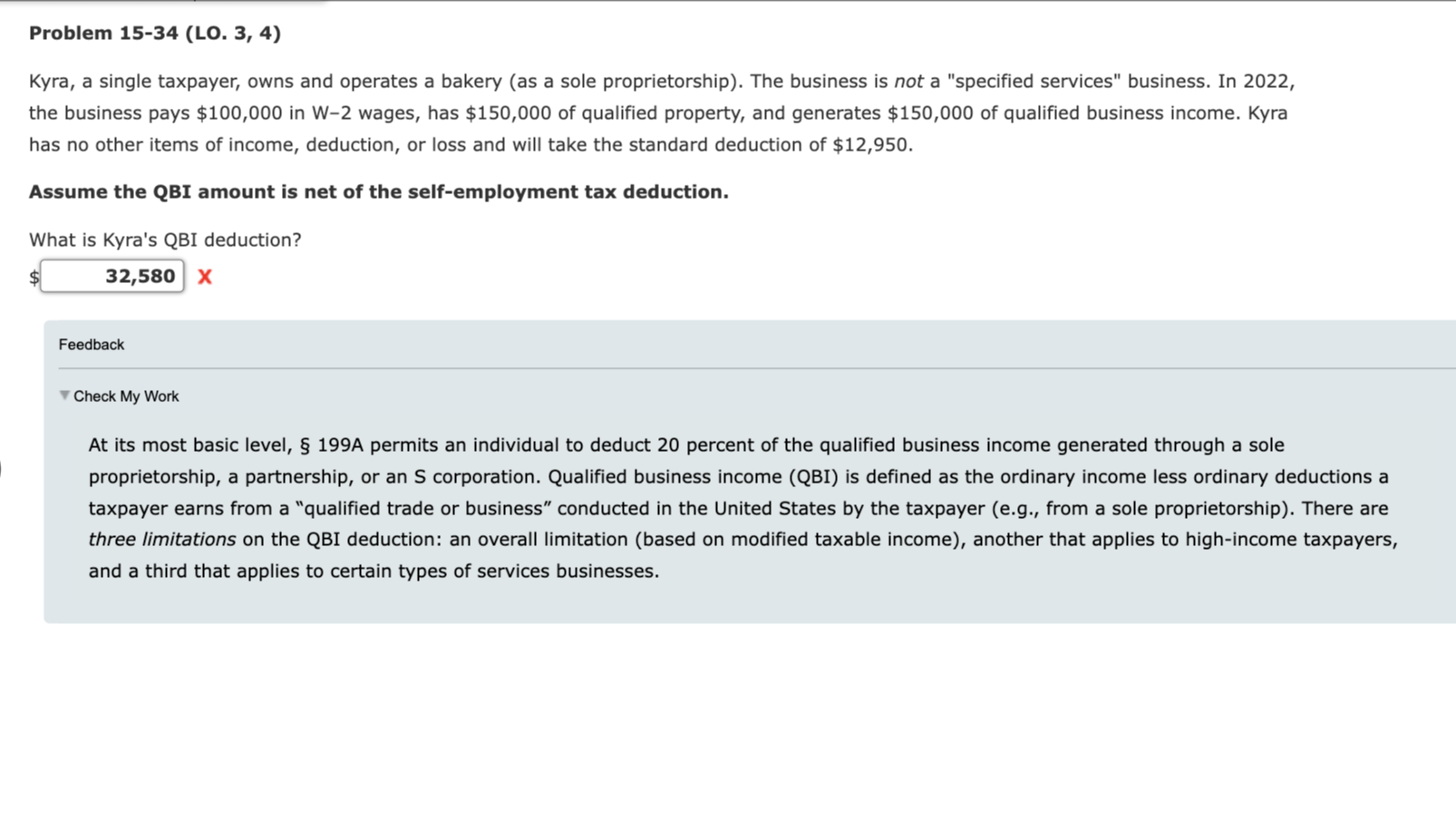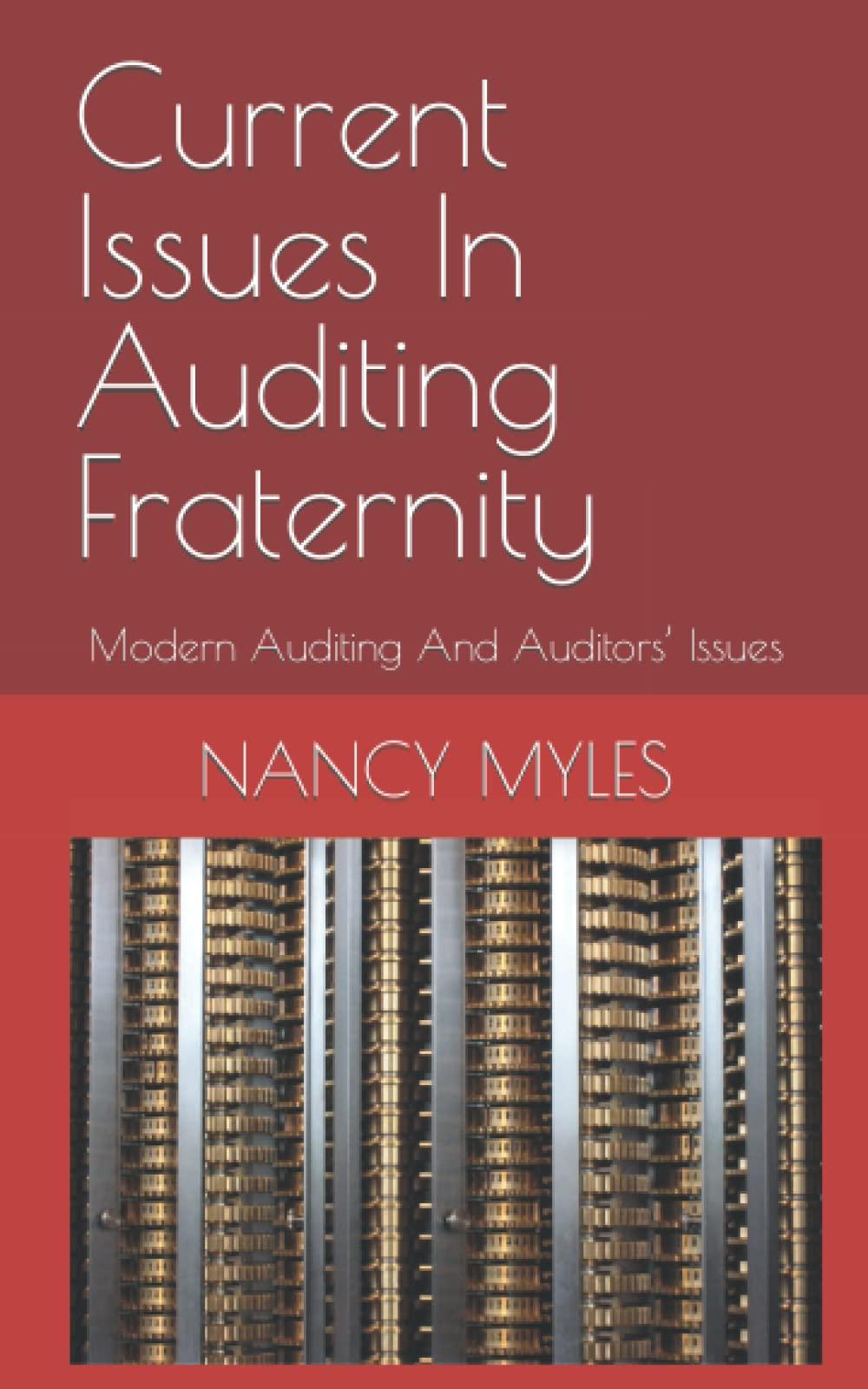
Kyra, a single taxpayer, owns and operates a bakery (as a sole proprietorship). The business is not a "specified services" business. In 2022, the business pays $100,000 in W2 wages, has $150,000 of qualified property, and generates $150,000 of qualified business income. Kyra has no other items of income, deduction, or loss and will take the standard deduction of $12,950. Assume the QBI amount is net of the self-employment tax deduction. What is Kyra's QBI deduction? $ X Feedback Check My Work At its most basic level, 199A permits an individual to deduct 20 percent of the qualified business income generated through a sole proprietorship, a partnership, or an S corporation. Qualified business income (QBI) is defined as the ordinary income less ordinary deductions a taxpayer earns from a "qualified trade or business" conducted in the United States by the taxpayer (e.g., from a sole proprietorship). There are three limitations on the QBI deduction: an overall limitation (based on modified taxable income), another that applies to high-income taxpayers, and a third that applies to certain types of services businesses. Kyra, a single taxpayer, owns and operates a bakery (as a sole proprietorship). The business is not a "specified services" business. In 2022, the business pays $100,000 in W2 wages, has $150,000 of qualified property, and generates $150,000 of qualified business income. Kyra has no other items of income, deduction, or loss and will take the standard deduction of $12,950. Assume the QBI amount is net of the self-employment tax deduction. What is Kyra's QBI deduction? $ X Feedback Check My Work At its most basic level, 199A permits an individual to deduct 20 percent of the qualified business income generated through a sole proprietorship, a partnership, or an S corporation. Qualified business income (QBI) is defined as the ordinary income less ordinary deductions a taxpayer earns from a "qualified trade or business" conducted in the United States by the taxpayer (e.g., from a sole proprietorship). There are three limitations on the QBI deduction: an overall limitation (based on modified taxable income), another that applies to high-income taxpayers, and a third that applies to certain types of services businesses







